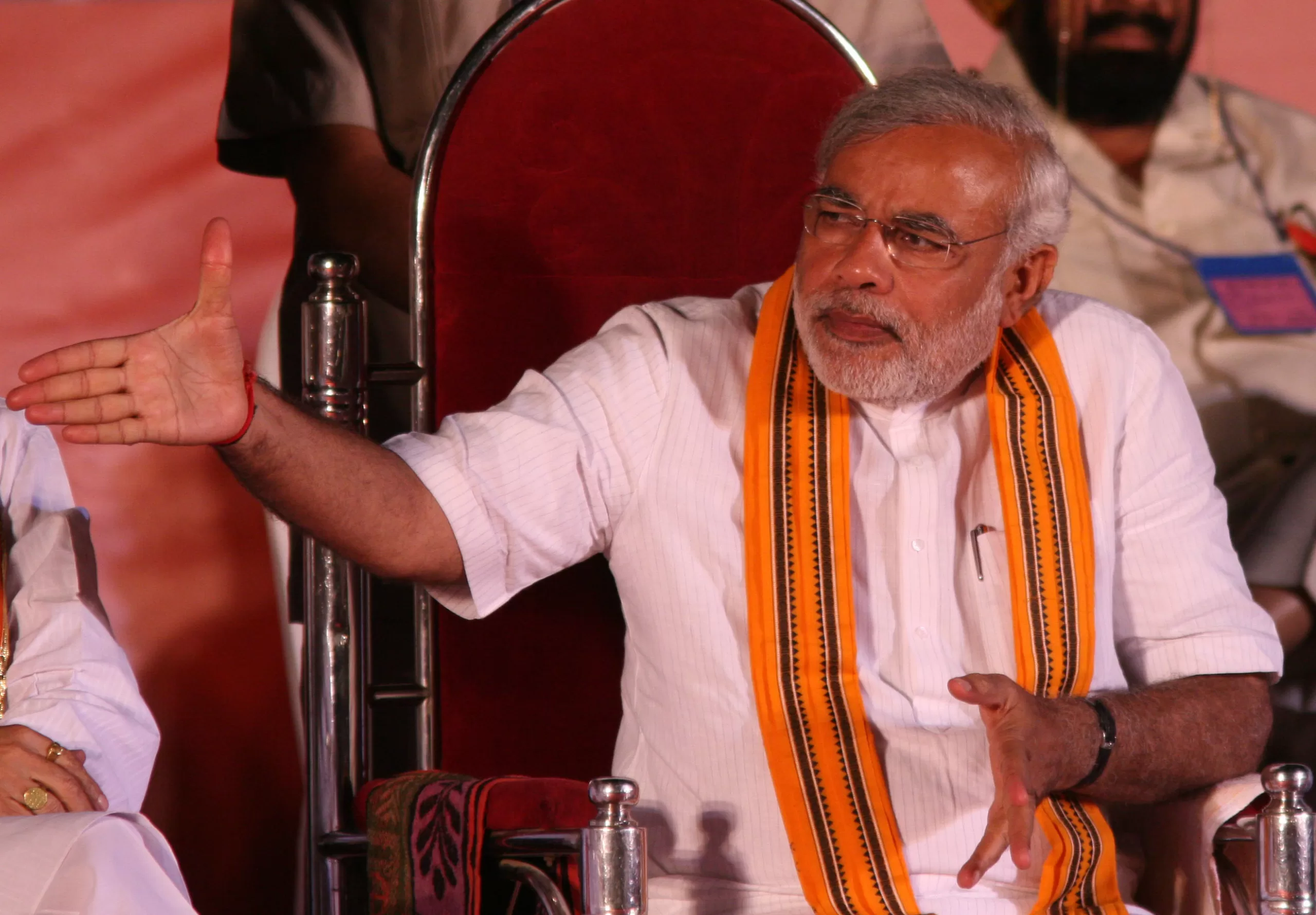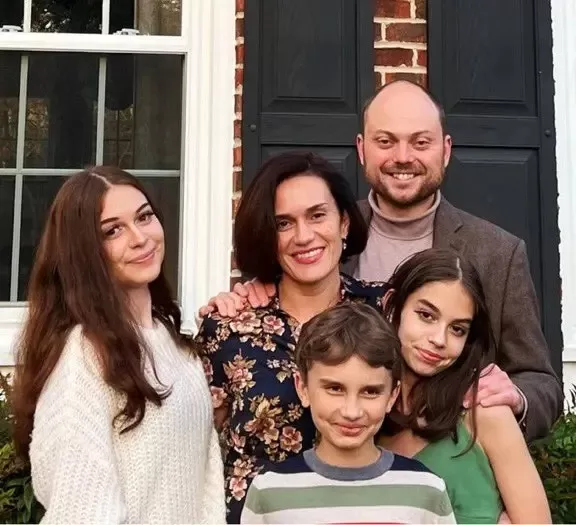 Daniel Barenboim tells Clemency Burton-Hill why music provides a model for living and governments continue to fear the power of its influence
Daniel Barenboim tells Clemency Burton-Hill why music provides a model for living and governments continue to fear the power of its influence
In 2001, the celebrated pianist and conductor Daniel Barenboim was accused of “cultural rape” and branded a “fascist” in Israel for conducting the work of Richard Wagner as the second encore during a concert in Jerusalem. A 40-minute chat with the audience had preceded the performance of the piece — the Prelude and Liebestod from Tristan und Isolde — during which time Barenboim had asked if the audience would like to hear it, and invited anyone who felt uncomfortable to leave. Around 2 per cent of the audience left; those who remained gave Barenboim and his orchestra, the Berlin Staatskapelle, a standing ovation. Wagner’s music has been censored, unofficially, in Israel since 1938.
In recent years, Barenboim has become increasingly vocal on non-musical issues, especially the Arab-Israeli conflict. He holds Israeli citizenship. In 1999, together with his close friend, the late Palestinian academic Edward Said, Barenboim founded the West-Eastern Divan Orchestra, an ensemble of more than 120 young musicians who hail from the Middle East — Israel, Palestine, Lebanon, Syria, Jordan — and other Muslim countries including Egypt, Iran and Turkey. Each summer, the orchestra comes together in Seville, where its members are issued with Spanish diplomatic passports allowing them freedom of movement, before launching an international tour. The orchestra is not able to perform in most of the countries represented by its members, but has enjoyed phenomenal critical acclaim elsewhere in the world. Barenboim was born in Argentina in 1942 to Russian-Jewish parents. He gave his first piano recital in Buenos Aires aged just seven, moved with his family to Israel aged ten, and was being described by conductor Wilhelm Furtwängler as a “phenomenon” by the time he was 11. The former music director of the Chicago Symphony Orchestra, Barenboim was named Conductor for Life at the Berlin Staatsoper in 2000 and Maestro Scaligero at La Scala, Milan, in 2006.
The recipient of numerous awards for his conducting, piano recordings and human rights work, he is also the author of three books: A Life In Music, Parallels and Paradoxes (with Edward W Said), and Everything Is Connected, in which he outlines his belief that music offers us a unique model for understanding human relations and the world. Clemency Burton-Hill, the granddaughter of a Jew from Belarus, is a British writer, broadcaster and violinist who has been involved with music projects in the West Bank and occupied Palestinian territories since 2004, including the al Kamandjati refugee camp music schools in Ramallah and Jenin. In January 2009, she was invited by Daniel Barenboim to join the West-Eastern Divan Orchestra as an honorary violinist on their tenth anniversary tour. She has also interviewed Barenboim on a number of occasions in print and on television, including the Proms, the BBC’s Culture Show, and the Berlin Philharmonic’s 2010 Europa Konzert, which will be broadcast on BBC4 later this year.
Clemency Burton-Hill: One of my strongest memories of rehearsing with you and the West-Eastern Divan is a moment when you reminded the members of the orchestra that every single one of their governments would stop them from being there if they could, and that what they were doing was therefore very brave. For all the adulation and acclaim that the Divan garners around the world, it strikes me that it is, essentially, a censored orchestra.
Daniel Barenboim: Yes, you’re probably right. The Divan is not acceptable to any of the countries represented by its members. We can’t play in any Arab countries except the Emirates, nor in Israel. The Israelis don’t understand why it is even necessary to make the gesture. And the Arab world mostly sees the Divan as a way of normalisation, in the sense of accepting Israel, and all the problems that involves.
Clemency Burton-Hill: So the fact that those kids come together to make music with each other every year, in the face of governments who would silence them and despite recriminations from their friends and family at home, feels like something of a defiant act.
Daniel Barenboim: It is. And you know, I believe more and more that it is up to individuals — or minorities — to express things which are not acceptable to the majority. Because there is always a special angle that an individual or a minority can have. And maybe the majority will eventually follow, but you cannot start a new idea that is going to change things with the blessing of the majority.
Clemency Burton-Hill: How important is it that the orchestra be allowed to make music freely in the Middle East?
Daniel Barenboim: I think the full dimensions of the Divan will only be achieved when we are able to play in Tel Aviv, Damascus, Beirut, Cairo, because that is really what it is all about. On the other hand, if the conflict was resolved there would hardly be a need for the Divan. And so it is a bit of a contradiction in terms. The Divan came into existence and continues to develop because of the conflict, and it has not yet been fully able to push through its idea of accepting the narrative of the other, the point of view of the other. For that you need a yearning voice for justice and for compassion, from both sides. And the Israelis as a majority I don’t think have a compassion for the rights of the Palestinians, otherwise they wouldn’t be occupying the territories for so many years and they wouldn’t blockade Gaza.
Clemency Burton-Hill: You have said that “Our challenge in the 21st century is to use music not only as an escape from life — in the sense that you come home fed up, put on music, and forget your troubles — but also as a way of making sense of the world. Music is not an alternative to living; it’s a model for living.” So when music is censored, or silenced, is there much more at stake than merely entertainment and pleasure?
Daniel Barenboim: Yes, of course. I think history has shown us that many people are afraid of the effect of music. It can be very exalting, it brings people to expressions of solidarity and of enthusiasm – which is not always the case with the government. That is why music was used and manipulated so unashamedly by dictatorships. By the Nazis, by the Soviets …
Clemency Burton-Hill: And, ironically, those governments that manipulate music for their own purposes are often the states that censor it most cynically.
Daniel Barenboim: Because music is very powerful. It is very difficult to remain unmoved by music, I think probably for the simple fact that it has a physical penetration through the ear, which is much stronger than through the eye. If I don’t like what I am seeing, I can close my eyes. But if I don’t like what I am hearing, I cannot close my ears; I mean, I can, artificially, I can put my fingers in my ears, but basically there is a penetration, a physical penetration, which makes it very powerful indeed.
Clemency Burton-Hill: I have heard you say there is something “subversive” about music.
Daniel Barenboim: Edward Said always used to say that music is subversive. When you have a beautiful melody played by a woodwind instrument, veryoften the accompaniment, say, in the strings, will subvert that. Yet at the same time, the full expression of the line will be totally dependent on it too. There are many, many lessons to be learned from that.
Clemency Burton-Hill: Is it possible to describe why music is so powerful, why it acts on us the way it does?
Daniel Barenboim: Well, I think music is so powerful because it is, first of all, a physical thing, a physical expression of the human soul; something that is not only in the thought. And it attacks, I would say, all the functions of the human being. It attacks the brain, and it attacks the heart, and it attacks the stomach, you know, the temperament. Each one of us reacts perhaps with one more than any other of those three elements, but all three are constantly in action, and that’s what makes it so dangerous. Music is much more powerful than words.
Clemency Burton-Hill: Which is why censorship of music has always existed, and still exists?
Daniel Barenboim: Yes. By the way, there is a wonderful book called Beethoven in German Politics [by David B. Dennis]. It documents how Bismarck, Hitler, and then in the East German Republic, how Beethoven was used for their purposes, and how Hitler managed to convince the world that Beethoven’s Ninth was the perfect example of German spirituality with a text that says ‘all men are brothers – except a few’, namely the Jews.
Clemency Burton-Hill: That brings us to an important point about the de facto censorship of Wagner in Israel. You have always been adamant that Wagner was originally banned after Kristallnacht in 1938 not because of his own anti-Semitism — which had been well known since the 19th century — but because of the anti-Semitism of the Nazi party, i.e. the monstrous and appalling uses to which Hitler put the music. That distinction seems still not to be being made in Israel today, where the ban is very much still in place.
Daniel Barenboim: I’m afraid Israeli public opinion has manipulated all that. I’m sure there are many people in Israel who “don’t want to hear Wagner” who think that Wagner was around in 1940 — that Wagner was a Nazi. But you know, none other than [Arturo] Toscanini — who besides being a great musician was a great fighter for liberty — in 1936, when he was conducting the opening concerts for the new symphony orchestra in Tel Aviv, ironically then called the Palestine Philharmonic, played Wagner and there was no problem. The decision to stop playing Wagner was taken by members of the orchestra after Kristallnacht and that was perfectly understandable and just, from my point of view, in 1938. But to continue with that now is arguably as bad as it would have been to continue to play Wagner from that day.
Clemency Burton-Hill: It seems ironic that you were accused of being a fascist for playing Wagner’s music, when it could be argued that censorship of any music in a democratic country is verging on the fascist.
Daniel Barenboim: As I have said before, the idea this was a scandal was started the following day by people with a political agenda, not those in the concert hall, which greatly saddened me. I have always said that I respect anybody’s right not to listen to Wagner and that is why his work should be offered to a non-subscription audience. Israel is a democratic society, there should be no place for such taboos.
Clemency Burton-Hill: Have you ever had any problems from members of the West-Eastern Divan who perhaps did not want to play Wagner?
Daniel Barenboim: No, in fact it was the Israeli members who asked me to play Wagner in the first place, in 2004 or 2005. It was the brass players, who came and asked me to programme some Wagner because they couldn’t play it in Israel, they could not hear it in Israel, but they felt that musically it was very important to them, and they had no problem with it.
Clemency Burton-Hill: How depressing is it, to you, that it is now almost a decade since you played that Wagner encore in Jerusalem, and yet the debate about whether his music should still be banned from live performance seems not to have moved forward at all — rather backwards?
Daniel Barenboim: Yes, but the whole of Israeli society, from my point of view, has humanly moved backwards over those ten years.
Clemency Burton-Hill: You have made an explicit connection between this issue and Israel’s relationship with the Palestinians and the conflict today, suggesting that the Wagner ban means Israelis have not yet made the transition into being Israeli Jews and are still identifying themselves with the Judaism of the 30s and 40s. You have said: “Until we are able to do that, we will not be able to establish a fruitful dialogue with non-Jews”, and pointed out that while a sense of history is imperative, Israel must also look forward.
Daniel Barenboim: Yes, well, it is the same instinct that would allow so many Israelis to deny the Palestinians who live in Israel, the so-called Israeli Arabs, their human rights; to not allow civil marriages; the same instinct that means there is no separation of the synagogue and government, which is something that is accepted in most of the world. The other place where it is not accepted is Iran!
Clemency Burton-Hill: Talking about Iran, the authorities there have banned all teaching of all musical instruments in all schools because “the use of musical instruments is against the principles of our value system”, according to Education Minister Ali Bagherzadeh. Any school in Iran that teaches music may now be permanently closed and its director barred. What do you think of that?
Daniel Barenboim: Well, one has to say that music has not played the role in the Muslim world that it has played in Europe for centuries, so in a way they are sadly more ignorant about the nature of what music is. For them, music is something to celebrate with at weddings and mourn with at funerals, but they don’t view it as an expression of the human quality of life. They don’t understand that when you play a piece of music, whether it is a Chopin Nocturne or a huge Bruckner Symphony, that this is the story of human life, it tells us something of the quality of humanity. This is what makes us moved when we listen to music.
Clemency Burton-Hill: The West-Eastern Divan contains some young Iranian musicians within its ranks. How do you find their attitudes?
Daniel Barenboim: Those youngsters obviously do not share the opinions of their government about the nature of music. As you know, they are wonderful musicians, they have a huge capacity of giving, of generosity.
Clemency Burton-Hill: And I don’t think it’s too idealistic to suggest that their experiences making music, especially in the West-Eastern Divan, have probably nourished and developed that capacity. The orchestra is what brings them together with Israelis and Arabs, but music leads these youngsters to all sorts of other connections — they talk about politics, football, pop music, films; they fall in and out of love with each other; they begin to understand and accept the narrative of the other and take what they have learned back home. Isn’t it a tragedy that young Iranians will henceforth be denied the right to even learn a musical instrument? To my mind that’s a particularly pernicious form of music censorship; silencing it before it even exists!
Daniel Barenboim: In the end, though, when people forbid things, it is because they are afraid of them. It is not a sign of strength, it is a sign of weakness.
Clemency Burton-Hill: Yes — I have been struck by that often, travelling through the occupied territories with musicians. I have watched Israeli soldiers turn away young Palestinian musicians and singers at checkpoints as if somehow playing Bach or singing Puccini were a genuine threat to the state of Israel. And it always smacks of such monumental cowardice, even if the soldier is wielding a gun. Especially when the soldier is wielding a gun.
Daniel Barenboim: Exactly.
Clemency Burton-Hill: And whoever it was who burned down the al Kamandjati music centre in Jenin, or destroyed the Gaza music school; such acts feel like a despicable yet rather pathetic attempt to silence the Palestinian’s fledgling right to express themselves, through music, as a people. As Ramzi Aburedwan [founder of the al Kamandjati music school and viola player in the West-Eastern Divan] always says: “Bring music, and you bring life.”
Daniel Barenboim: Of course. You know, earlier this year, in May, I had organised an orchestra only of European musicians — no Israelis, no Arabs — to play a concert in Gaza. Simply to give people a little bit of relief from the harshness of their lives. And in the end the Israeli government did not allow it to happen, because they would have had to open the border to me and 35 musicians, once in the morning to let us in, once in the afternoon to let us out. We would have been there simply to make music; there was no question of anything else. But they forbade it. I found it absolutely devastating, I have to say.
Clemency Burton-Hill: What would you have played?
Daniel Barenboim: We would have played Mozart.
Clemency Burton-Hill: And if an Israeli politician had the vision to think about this differently, to say: we are a democracy, we support human rights, the inalienable human right to self-expression, we must let international musicians come here and make music freely …
Daniel Barenboim: A politician like that would not be elected in Israel.
Clemency Burton-Hill: But these are the moments, as you say, when Israel can define itself as a democracy. How can it get away with silencing something as innocuous and humane as a simple concert of Mozart in Gaza?
Daniel Barenboim: I have no idea. I have no idea. It defies every logic. Every logic. From our Jewish history we should be the first ones to know the importance of compassion and not to do unto others what was done unto us for so many centuries.
Clemency Burton-Hill: Where does it all end?
Daniel Barenboim: I don’t know. I don’t know. I really cannot answer that.
To read other articles in Smashed Hits 2.0 or to subscribe to Index go to www.indexoncensorship.org/subscribe
To listen to contributors’ playlists go to www.indexoncensorship.org/music






